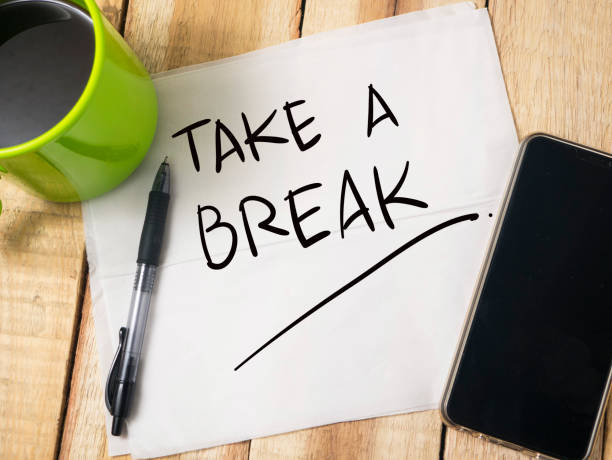Should I Take Creatine on Rest Days or Off Days? Here's What to Know
Should You Take Creatine on Rest Days? Everything You Need to Know
Creatine is a staple in many athletes' and gym-goers' supplement routines, but the question remains: Should you take creatine on rest days?
This blog explores the science and benefits of creatine supplementation, specifically focusing on whether it’s necessary to keep up your creatine intake even when you're not working out.
If you’ve ever wondered whether taking creatine on rest days could boost your muscle growth, improve muscle recovery, and optimize your gains, you’re in the right place.

Article Outline
- What Is Creatine and Why Is It Popular?
- What Happens to Your Body When You Take Creatine?
- The Benefits of Taking Creatine on Rest Days
- Should You Skip Creatine on Rest Days?
- How Creatine Works on Rest Days to Maintain Muscle Creatine Levels
- The Role of Rest Days in Recovery and Muscle Growth
- How Much Creatine Should You Take on Rest Days?
- Best Time to Take Creatine on Rest Days
- The Science Behind Creatine Loading and Maintenance
- Common Misconceptions About Creatine Supplementation
What Is Creatine and Why Is It Popular?
Creatine is a naturally occurring compound in the body that plays a crucial role in energy production, especially during high-intensity workouts. Found in foods like red meat and fish, it’s more commonly consumed as a creatine supplement to boost athletic performance and muscle mass.
Studies have shown that creatine monohydrate is one of the most effective and safe supplements for building muscle, improving strength, and enhancing recovery.
But it’s not just for workout days—creatine can be taken daily, including on rest days, to keep your creatine stores saturated.

What Happens to Your Body When You Take Creatine?
When you take creatine, it increases the levels of creatine in your muscles, enhancing their ability to produce energy quickly. This is particularly useful for short bursts of intense activity, like weightlifting or sprinting.
On rest days, maintaining elevated creatine levels helps support muscle recovery and ensures your body is ready for your next workout.
Creatine also benefits muscle cells by improving hydration and reducing muscle damage, even when you’re not exercising.

The Benefits of Taking Creatine on Rest Days
Many people wonder, "Is it OK to take creatine on rest days?" The answer is yes.
Taking creatine on rest days helps:
- Maintain Optimal Creatine Stores: Consistent supplementation ensures your muscles are always saturated with creatine, which is key for maximizing its effects during workouts.
- Support Muscle Recovery: Creatine helps reduce muscle damage and promotes faster muscle recovery, even when you're not training.
- Improve Long-Term Gains: Studies have shown that creatine helps build muscle mass over time, and daily use—including on rest days—is essential for sustained results.
Learn more about creatine recovery benefits.

Should You Skip Creatine on Rest Days?
It’s not a good idea to skip creatine on rest days. Creatine works best when taken consistently, as it takes time to build up in your muscles. Skipping days can cause your creatine levels to drop, reducing its effectiveness.
Even on rest days, taking creatine helps maintain the benefits of supplementation, such as improved muscle recovery and readiness for your next training session.
For a deeper dive into creatine myths, check out this resource.

How Creatine Works on Rest Days to Maintain Muscle Creatine Levels
When you’re not working out, your muscles still use creatine for recovery and repair. Taking creatine on rest days ensures that your creatine stores remain full, allowing your muscles to retain their ability to perform at peak levels.
Consuming creatine daily, including rest days, ensures that your body has a steady supply to support processes like muscle repair and energy production.

The Role of Rest Days in Recovery and Muscle Growth
Rest days are critical for muscle growth and recovery. They allow your body to repair muscle damage caused by intense workouts, build new muscle tissue, and restore energy levels.
Creatine supplementation on rest days enhances these recovery processes. By maintaining optimal creatine levels, you’re giving your muscles the nutrients they need to recover faster and grow stronger.
Explore the pros and cons of creatine supplementation.

How Much Creatine Should You Take on Rest Days?
The standard dosage of creatine is 3-5 grams per day. On rest days, the amount doesn’t change—continuing with 3-5 grams of creatine daily ensures that your muscles remain saturated.
If you’re in a creatine loading phase, you may take 20 grams of creatine daily for 5-7 days to saturate your muscles more quickly. After the loading phase, transitioning to a maintenance dose of 3-5 grams daily, including rest days, is sufficient.

Best Time to Take Creatine on Rest Days
While there’s no definitive best time to take creatine on rest days, taking it with a meal that includes carbohydrates may enhance its absorption. Carbs with creatine can increase the uptake of creatine into your muscles.
Whether you take it in the morning, afternoon, or evening doesn’t matter as long as you’re consistent. The key is to maintain a daily habit to keep your creatine stores full.

The Science Behind Creatine Loading and Maintenance
During a loading phase, consuming 20 grams of creatine daily for 5-7 days can rapidly saturate your muscles. This phase is optional but can help you experience the effects of creatine supplementation sooner.
Once your muscles are saturated, transitioning to a maintenance dose of 3-5 grams per day ensures your creatine levels stay elevated, even on rest days. This long-term strategy supports sustained muscle growth and performance.

Common Misconceptions About Creatine Supplementation
- “Should I take creatine on rest days?” Yes, taking creatine daily is essential for maintaining its benefits, even on rest days.
- “Does creatine cause bloating or water retention?” While creatine increases water content in muscle cells, this is beneficial for muscle growth and performance.
- “Is creatine only for bodybuilders?” No, creatine can benefit anyone engaged in high-intensity exercise, from athletes to recreational gym-goers.
Key Takeaways: Why You Should Take Creatine Every Day
- Take Creatine Consistently: Daily supplementation, including rest days, is essential to maintain creatine stores.
- Supports Recovery: Creatine aids muscle recovery and repair, even on non-training days.
- Enhances Long-Term Gains: Consistent creatine intake promotes sustained muscle growth and performance.
- Dosage Matters: Stick to 3-5 grams of creatine daily for maintenance or follow a loading phase for quicker results.
- Timing Is Flexible: Take your creatine at a convenient time, ideally with a meal for better absorption.
By incorporating creatine into your daily routine, including rest days, you’ll optimize its benefits and support your fitness goals for the long term.
Remember, the key to unlocking the full effects of creatine is consistency.
References
- Kreider, Richard B., et al. "Creatine Supplementation: Analysis of Ergogenic Value, Medical Safety, and Concerns." Journal of Exercise Physiology Online, vol. 4, no. 4, 2001, pp. 1-44. https://downloads.regulations.gov/FDA-2003-S-0732-0099/attachment_18.pdf.
- Rawson, Eric S., and Vanessa M. Clarkson. "Creatine Supplementation for Muscle Growth: A Scoping Review of Randomized Controlled Trials." Nutrients, vol. 14, no. 7, 2022, article 1455. https://www.ncbi.nlm.nih.gov/pmc/articles/PMC8949037/.
- "Creatine: MedlinePlus Supplements." MedlinePlus, U.S. National Library of Medicine, https://medlineplus.gov/druginfo/natural/873.html.
- "What Is Creatine? Potential Benefits and Risks of This Popular Supplement." Harvard Health Publishing, Harvard Medical School, https://www.health.harvard.edu/exercise-and-fitness/what-is-creatine-potential-benefits-and-risks-of-this-popular-supplement.
- "Creatine for Exercise and Sports Performance, with Recovery." PubMed Central (PMC), https://www.ncbi.nlm.nih.gov/pmc/articles/PMC8228369/.
- "Creatine Supplementation Enhances Muscle Force Recovery after Eccentrically-Induced Muscle Damage in Healthy Individuals." SpringerLink, https://link.springer.com/article/10.1007/s00421-007-0463-4.
- "Creatine Supplementation with Specific View to Exercise/Sports Performance: An Update." Journal of the International Society of Sports Nutrition, vol. 4, no. 1, 2007, pp. 6-18. https://jissn.biomedcentral.com/articles/10.1186/1550-2783-4-6.
- "Creatine: State of the Science at the Millennium." Creighton Prep, https://www.creightonprep.creighton.edu/uploaded/Athletics_Page/Weight_Room/Supplement_Info/creatine.pdf.
For More Training Advice + Diet and Lifestyle visit us Combat Creatine
PS: Make sure you check out the rest of our Creatine Guides:
Creatine
Creatine Supplements Ultimate Guide
Creatine Supplementation Side Effects
Best Creatine Monohydrate Gummies Review: Top 10 Best Creatine Gummies












